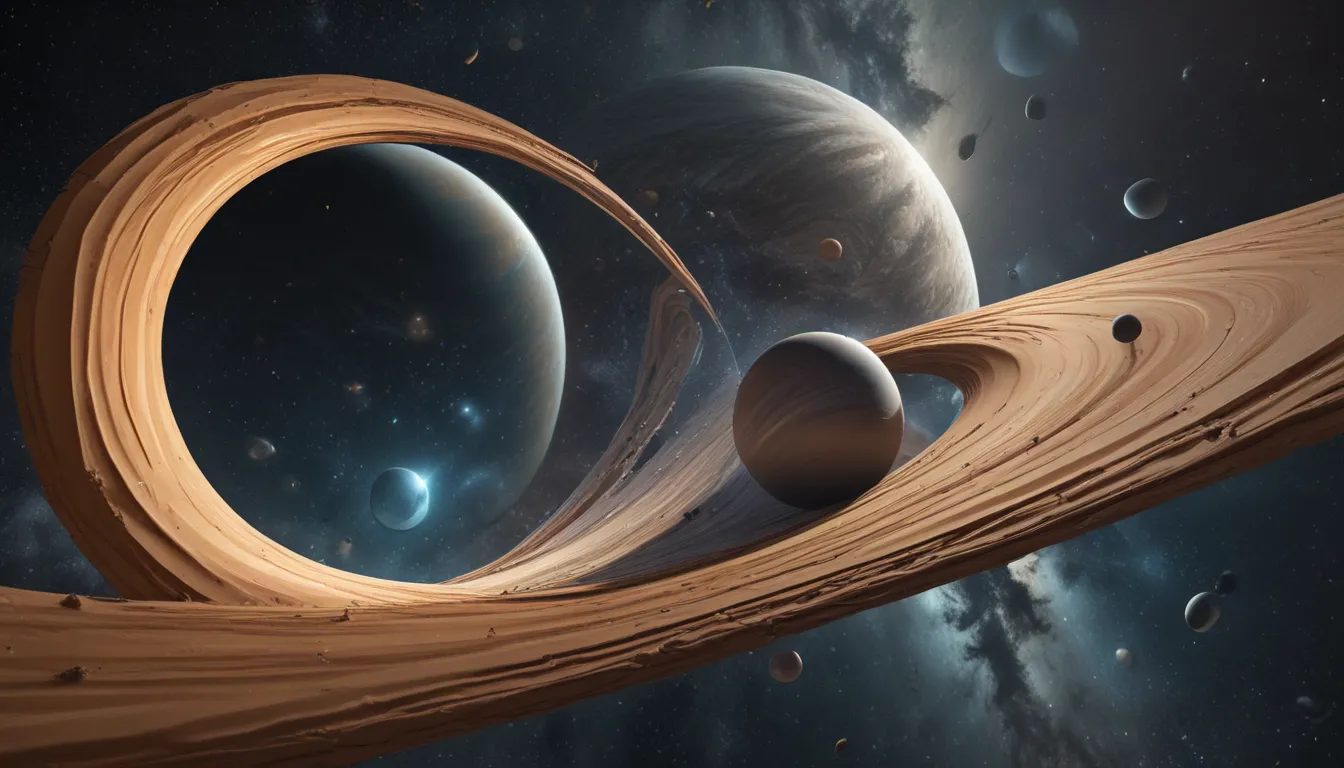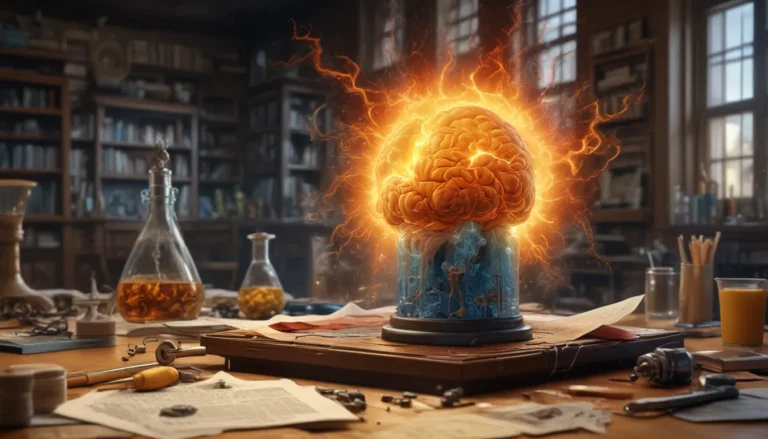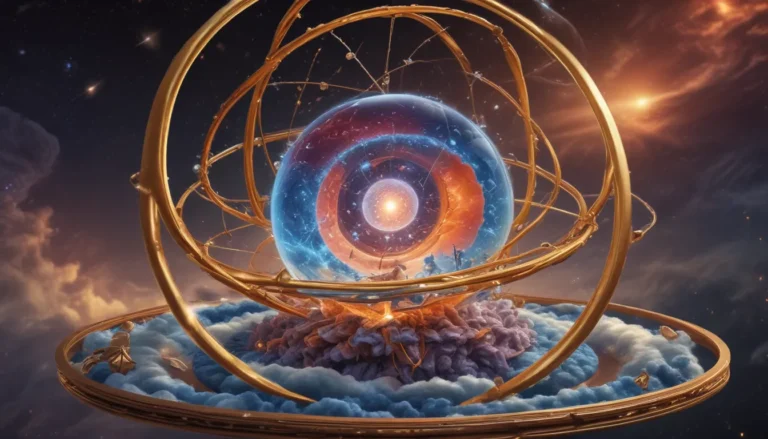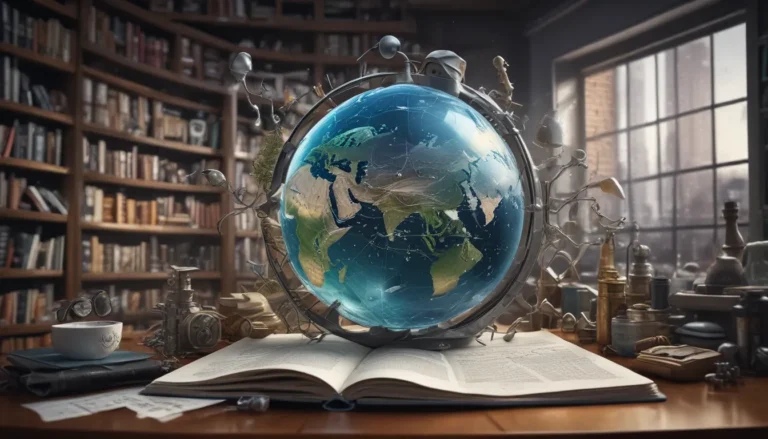A Note About Images: The images used in our articles are for illustration purposes only and may not exactly match the content. They are meant to engage readers, but the text should be relied upon for accurate information.
General relativity, a revolutionary theory developed by the legendary physicist Albert Einstein, has transformed our understanding of gravity and the universe. In this article, we will delve into the fascinating world of general relativity and explore its extraordinary implications. From the bending of light around massive objects to the prediction of black holes, general relativity challenges our traditional notions of space, time, and the cosmos. Let’s embark on a captivating journey through the mind-bending realm of general relativity.
The Core Concepts of General Relativity
Gravity as Spacetime Curvature
General relativity describes gravity not as a force exerted by massive objects, but as the curvature of spacetime caused by the presence of mass and energy. This innovative concept provides a new perspective on the fundamental force that governs the dynamics of the universe.
Time Dilation in Strong Gravitational Fields
According to general relativity, time passes more slowly in regions with stronger gravitational fields. This phenomenon, known as time dilation, demonstrates how the presence of massive objects like stars and black holes can influence the flow of time itself.
Prediction of Black Holes
Einstein’s theory allows for the existence of black holes, regions of spacetime where gravity is so intense that nothing, not even light, can escape. The prediction of black holes showcases the remarkable implications of general relativity on our understanding of the universe.
Gravitational Lensing and the Bending of Light
General relativity predicts that massive objects can bend the path of light as it passes near them, a phenomenon known as gravitational lensing. This effect has been observed in astronomical observations, confirming the validity of Einstein’s theory.
Influence on the Formation of Galaxies
The distribution of matter in the universe and the formation of galaxies can be understood through the lens of general relativity. By incorporating this theory into cosmological models, scientists gain valuable insights into the structure and evolution of the cosmos.
Practical Applications and Confirmations of General Relativity
GPS Systems and Time Dilation
The Global Positioning System (GPS) relies on precise timing, and general relativity plays a crucial role in ensuring the accuracy of location data. By accounting for the effects of gravity on satellite clocks, GPS systems demonstrate the practical applications of Einstein’s theory.
Confirmation through Experiments and Observations
Multiple experiments and observations have confirmed the predictions of general relativity, solidifying its status as a foundational theory in modern physics. From the precession of the perihelion of Mercury to the deflection of starlight by the Sun, various astronomical phenomena are explained by this groundbreaking theory.
Compatibility with Quantum Mechanics
While general relativity has been successful in explaining gravity on large scales, it is currently incompatible with quantum mechanics, the theory that describes the behavior of matter and energy on the smallest scales. Bridging the gap between these two theories remains a significant challenge in physics.
Delving Deeper: Exploring the Universe with General Relativity
Framework for Cosmological Understanding
By incorporating general relativity into cosmological models, scientists have gained valuable insights into the origin, evolution, and structure of the universe on the largest scales. This theory provides a framework for understanding the universe’s vast complexities and dynamics.
Challenging Intuitive Notions of Space and Time
With its concept of spacetime curvature and dynamic gravity, general relativity challenges our traditional understanding of the fabric of the universe. By questioning our intuitive notions of space and time, this theory opens up new avenues for exploration and discovery.
Conclusion: Embracing the Wonders of General Relativity
In conclusion, general relativity stands as a remarkable and captivating theory that has reshaped our understanding of the cosmos. From predicting black holes to influencing the formation of galaxies, the concepts and predictions of Einstein’s theory have been validated through experiments and observations. General relativity continues to inspire scientists and enthusiasts alike, fueling our quest for knowledge and exploration of the universe.
FAQs: Exploring General Relativity
-
What is General Relativity?
General relativity is a theory of gravity developed by Albert Einstein, describing gravity as the curvature of spacetime caused by mass and energy. -
How does General Relativity differ from Newton’s theory of gravity?
While Newton’s theory describes gravity as a force acting at a distance, general relativity posits that gravity is the result of spacetime curvature caused by mass and energy. -
What evidence supports General Relativity?
Evidence supporting general relativity includes the bending of light around massive objects, the precession of Mercury’s orbit, and the detection of gravitational waves. -
Can General Relativity explain black holes?
Yes, general relativity provides a framework for understanding black holes, predicting their intense gravitational pull that traps even light. -
Are there practical applications of General Relativity?
General relativity is applied in GPS systems to account for time dilation effects caused by gravitational variations on Earth’s surface. -
Is General Relativity compatible with quantum mechanics?
Currently, general relativity and quantum mechanics are separate theories that do not fully align, posing a challenge for unified physics.
As we unravel the mysteries of the universe, general relativity continues to guide our exploration and understanding of the cosmos. Its profound implications and applications inspire us to push the boundaries of knowledge and curiosity, paving the way for new discoveries and insights into the intricate workings of the universe. Join us in embracing the wonders of general relativity and unlocking the secrets of gravity and spacetime.






